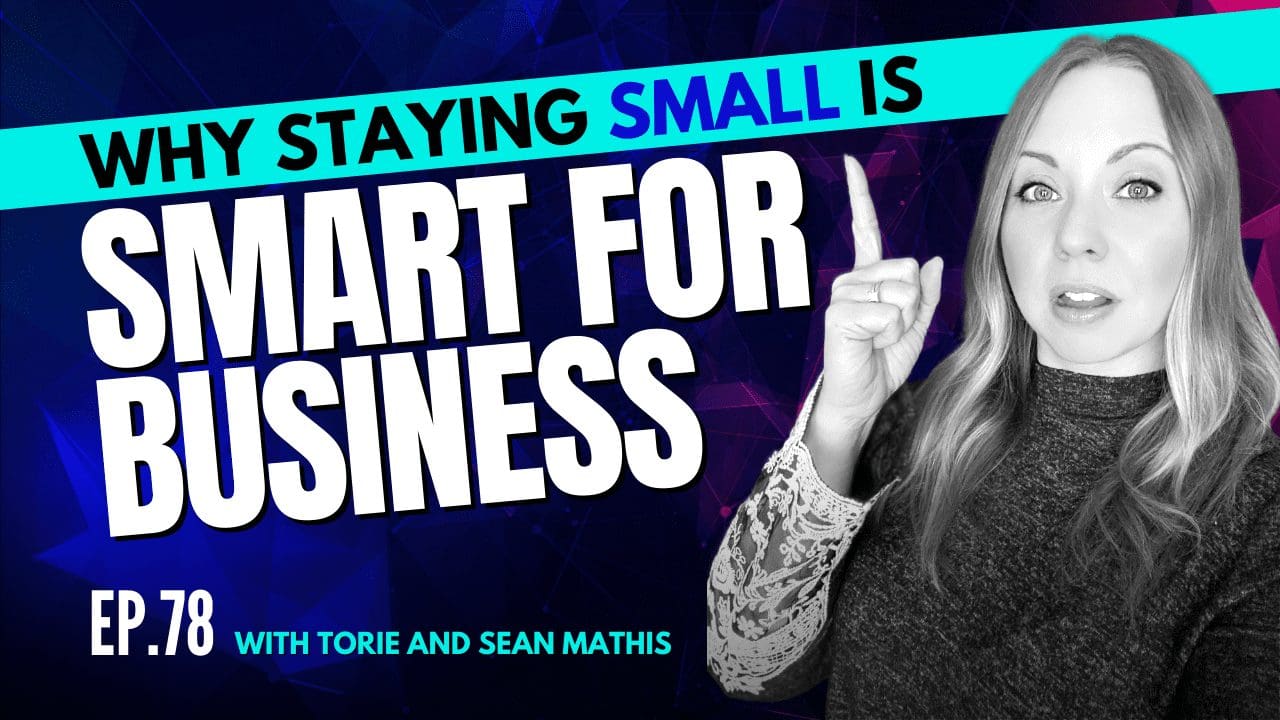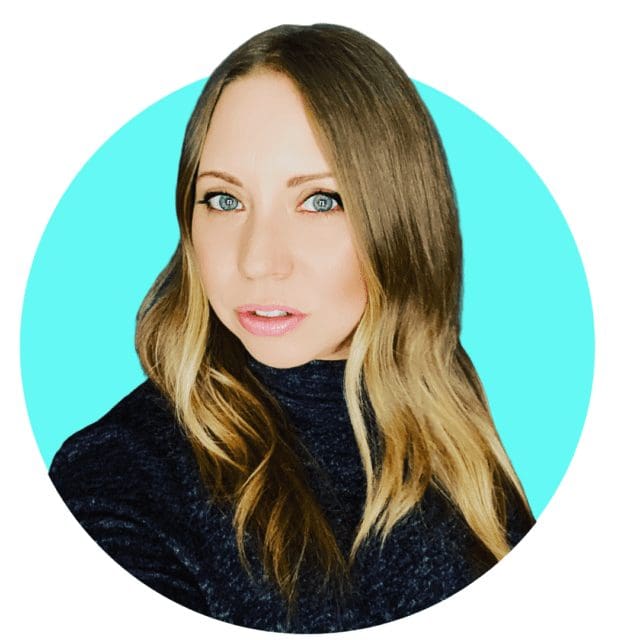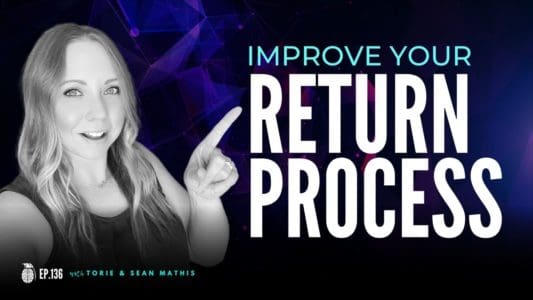Ep. 78 Why Staying Small is SMART Business

Why Staying Small is SMART Business
When I started my business I thought BIG meant successful. I tried everything I could to look as big as possible as quickly as possible. Over the years I’ve learned big does not equal success, in fact, for me small, nimble, and profitable is my definition of success.
In this episode, Sean and I talk about how staying small has been smart for our businesses and why staying small might be the way for you.
We’ll cover:
Why staying small is smart
Why you need to know what success looks like for your business
Why overhead is overrated
Why being nimble is the best part of being small
Why leverage is the key to be successful and small
Why you need to stop doing what you think you’re supposed to do
Mentioned in the episode:
The Million-Dollar, One-Person Business: Make Great Money. Work the Way You Like. Have the Life You Want. https://amzn.to/31WxaXU
Recommended Tools:
Kartra https://toriemathis.com/kartra
WP-Engine https://toriemathis.com/wpengine
Grammarly https://toriemathis.com/grammarly
Listen or watch the full episode below:
EPISODE TRANSCRIPTION –
(transcription is auto-generated)
SAF 78
Torie: [00:00:00] So I’ll tell you the first time I made over six figures and it was just me. I was like, Holy shit. Like I, I figured this out.
Hey guys, what’s up? It’s Torie Mathis, your host. And I’m here with the one and only Sean Mathis, Founder of Miles Through Time Automotive Museum.
Sean: [00:00:26] How’s it going?
Torie: [00:00:27] So Sean and I both have small businesses. And when I say small businesses, I don’t mean small. Like we’ve chosen to not make a lot of money or do a lot of things, but small in the way that we’ve always tried to keep our overhead down and be able to be a little nimble.
Do you agree?
Sean: [00:00:46] Absolutely. Especially like Miles Through Time, like the museum can only be so big. Before I’ve got issues. Like having stuff on display is not an issue, even co-op style. I can get enough people to put enough stuff in there that can fill a hundred thousand square foot building, like hands down.
No problem. Very soon I could fill a hundred thousand square feet. The problem would then be. I’ve got to make sure I get enough people in the doors to justify that kind of space because with that space comes a lot more overhead, a lot more than what we currently have. And it just, it would not make sense to go that big right now without knowing that I am not going to get enough people to come in.
To pay for it. Like it would kill the museum. If we went too big,
Torie: [00:01:43] I’ve been to quite a few museums that were big, like really big and very fancy. And we talked to them about how many people they had come in, and they just like Miles Through Time, have days that they only have a handful of people.
A handful of people in a multibillion dollar building is not paying the bills. And so the reason I think some of these businesses where museums are able to keep afloat and that it doesn’t hurt them is that they have a large benefactor. That’s fantastic for them, but a lot of businesses, you’re not going to have some angel investor or benefactor or, rich sugar, daddy,
Sean: [00:02:20] Just gives you money.
Torie: [00:02:22] Like for most of us. That’s not going to be the case. I don’t remember the book that it was. I think it was the one, one person millionaire. If I think about it, I will put it in the show notes down below. But it was talking about what this business owner wanted, and I don’t remember what business he was in, wanted to double his revenue.
And so I think that he was at like $250,000 or $500,000 a year and he wanted to get to a million. So he wanted to double his revenue. And so he hired all these people and did all these things and it took them a little while and he doubled his revenue, but he only took home like 20,000 more dollars. And it was like a crazy amount of stress and all of this extra stuff that he had to do.
And then he turned around and looked and that’s not really what he wanted. And so he actually had to backpedal all of that in order to get down to where he was before because all that extra work wasn’t worth it in the end. For being that big to not really make as much until I have a lot less time and a lot more stress.
And so I think that I think staying small and staying nimble is a better strategy for a lot of businesses. When I probably about five, six years into my business, I came across this guy that was interested in working for me. I’d put out an ad and I was going to hire a part-time designer. Do you remember this?
And he, this guy, he just he used to work at marketing agencies and he had done all these things, blah, blah, blah. And he just wanted to do some stuff in his spare time, but he was telling me about it. So many marketing agencies that he has had helped start, they would take and take out loans and put like 60, $70,000 into buying a piece of not buying, like renting out a piece of property, leasing one, totally furnishing it, doing all these crazy things ahead of time before they even got a client.
I’m like, Holy shit. Why would they do that? Like totally different that they just wanted that appearance of being further along and very successful. Before they even brought on any clients. What kind of fucking stress would that cause? It’s if you didn’t get that client.
Sean: [00:04:44] Pay bills, you’re not making it. You’re not working to make money.
You’re just working to pay off debt. That’s a horrible way to do it.
Torie: [00:04:51] Like we talk about, doing things with design and how to like, not waste time and all these things. And once you bring on all these other people and all these other things, like debt that you have to consider you lose so much of being nimble of being flexible.
And that’s part of the great thing about being a small business, you can do things that other businesses can’t do.
Sean: [00:05:17] And if you want to sell more or whatever your product is or create more like you only have so much time in the day to create, which means you’re going to have to hire other people to do the creating as well.
You only have so much space to store products. So if you get more, you gotta purchase another spot to put more product. It’s not necessarily that it’s wrong to do those kinds of things. You just, you’ve gotta be aware that with more creates more overhead. You’ve got more, you’ve got to do.
Torie: [00:05:47] I think that more or bigger, doesn’t have to be the answer. Like there, isn’t this rule book that says your successful in business, when you do a million dollars a year, like that is not the goal for everybody. It doesn’t have to be that most people don’t need that much money. Or don’t and don’t want the stress that goes along with that.
So don’t feel like because your business isn’t there, that you’re not successful. Maybe that’s not what success is for you. Maybe having a small little nimble business that you can go and work from your laptop. Maybe that is the goal. Like you got to figure out what your goal is. And I can tell you after hiring a few people after renting an office space, small and nimble is definitely for me, what is going to be part of success. Like the fact that we have been able to go across the world and spend two weeks in Australia, never missed a beat. Clients were happy like that to me is successful. And I would rather do that than build, an empire with lots of employees and overhead and have a building, storefront, and things that I definitely could do.
But for me, I’ve decided that’s not what success means for me, nimble and flexible is more important for me.
Sean: [00:07:03] Not everybody needs or wants to be Richard Branson or you are the head of so many damn companies that you’re. You’re working constantly the amount of stress on your shoulders.
That’d be massive. Is it only about money? Is it only about some sort of power control? What is it that you actually want to do? For us, we have a certain lifestyle that we want to live by that doesn’t require us to be billionaires. Yeah, it doesn’t require us to have 50 employees. There are so many of them, it’s like the commercials that we talked about.
And as our episode that tells you how you’re supposed to think and feel like there is no mandatory requirement for any of this stuff. When you’re an entrepreneur, like you, you don’t have to do anything crazy. You just make yourself happy. Whatever that is, but you gotta be all in to do it.
Cause if you’re doing it as a hobby, you’re not a business owner. You’re just doing something on the side. Which again, if that’s all you want to do, just acknowledge that’s all it is. And so growing that to be something massive, obviously isn’t going to be the direction you want to go into, but if you’re all in as being an entrepreneur business owner, Something that, that you have complete control over.
You want to, what is it you want out of it? Do you want to have a bunch of employees? Do you want to make millions of dollars? Do you realize that if you’re going to make a million dollars, you actually need to make $3 million? There are a few different things you got to think about there.
Torie: [00:08:41] Yeah, knowing what you want and what those goals are for yourself and not taking what you saw somebody else do, or somewhat you think society says, or your mom says, or whoever else says is successful.
I’m using that as your measuring stick is definitely not the way to go. You’ve got to figure that kind of stuff out for yourself, but don’t think that being small means not being successful because there are lots of incredibly successful business owners and entrepreneurs that I’m surprised and read a couple of books about some of these small ventures.
And it’s amazing the things that people can do and stay nimble. Just. Using your time more wisely using technology a lot better so that you can leverage your time to do a lot more. There are things that you can do to be very successful make a lot of money if that’s what you want to do and not have to end up being a really big operation.
Sean: [00:09:39] There’s some of this patients too can you remember how awesome it felt when you made a thousand dollars a month? Self-employed. First thousand dollars. It wasn’t a hundred thousand dollars, but it was a thousand dollars that you made that like you weren’t working for somebody. It wasn’t a paycheck.
There’s no reason to not be proud of that. That’s awesome. And people it’s so easy to compare yourself, especially to. People in industries and bit that they’re not even close to relatable to you. Don’t worry about it. And again, it’s really easy to get caught up on that nice even million dollar number.
Nobody cares. Like you can literally live like a millionaire without making even remotely close to that amount of money. Yeah. And I don’t know about you, but I don’t really care about a super amount of stress to be able to say that I make a million dollars a year.
Torie: [00:10:33] I seen a lot of people say that the amount of work that it takes you to go from, a hundred thousand to a million, isn’t the same amount of work as it takes to go from zero to a hundred thousand.
That’s the hard part. Once you figure that out, then it’s a lot easier. So I’ll tell you the first time. I made over six figures and it was just me. I was like, Holy shit. Like I, I figured this out. It’s I can do so much. Like it, it was really good, amazing that once I hit that, that ceiling and was able to break like you can do anything.
You don’t need a team. Cause I still, at that time, I was still trying to hire and still trying to, I thought I needed a office space. You remember, we tried to look at places and I still was stuck on this. I was supposed to, I’m supposed to, I’m supposed to, as it turns out.
Sean: [00:11:19] And all those things, we’re going to wind up knocking that amount that you made down.
Don’t do that. And we were able to make more.
Torie: [00:11:28] Yeah, it took a while though. I was really stuck on that, like what I was supposed to do or how business was supposed to be. But the freedom after realizing that it can be however I want, I don’t have to have a bunch of employees. I don’t have to have a storefront. I don’t have to have a fancy office and lots of debt from furniture.
Sean: [00:11:47] And at the beginning, like it wasn’t as common to have, like this whole work from home atmosphere. Like in the beginning, there was this misconception, like we needed to have some sort of office space. There was this place that we had to go to get away from the kids.
There’s all these. These misconceptions that we thought we needed to go do would have. And ultimately all they were expenses that were unnecessary. Yeah. Every single one of them,
Torie: [00:12:14] Luckily we didn’t though. I think we started to go down the path of those things. Like we didn’t buy a building, we didn’t hire 50 people. Like we hired a couple of people and realized like, maybe that’s not what we want,
Sean: [00:12:27] Although almost buying a building. Led to the museum. That is true. So if we wouldn’t have at least gone down that route of, ah, let’s go buy this building and, see what we can do with it and multipurpose business, all these different things that we wanted to do.
And we didn’t do any of that. Instead, we opened a museum, which is being nimble, right? Yeah. It worked out well.
Torie: [00:12:52] It did. So figuring out exactly what you want for your business and not relying on what you think success is supposed to be. You’re supposed to look like you can figure it out and set your own benchmarks and what you want and work up from there.
So if you like this video, we would appreciate it. If you would leave us a review and we’ll see you on the next one. Do you want to get smart tools to build your business? Go to getsmartaf.com
About Digital Marketing Expert Torie Mathis

Torie hosts SMART AF, a show for non-techy entrepreneurs looking to grow their business, with her husband Sean and is the creator of SMART AF Magazine. Learn from Torie at the Smart Arsenal and on her channel.
Hi! I'm Torie!

You don’t need crazy tech skills, buckets of cash, or dedicated staff to market your business. You don’t even need a lot of time.
What you need is to be SMART.
GET SMART AF
DELIVERED TO YOUR INBOX
from your Digital Marketing Coach Torie Mathis!
Let's get SMART!
Let's Connect!







 I help entrepreneurs learn digital marketing.
I help entrepreneurs learn digital marketing.

